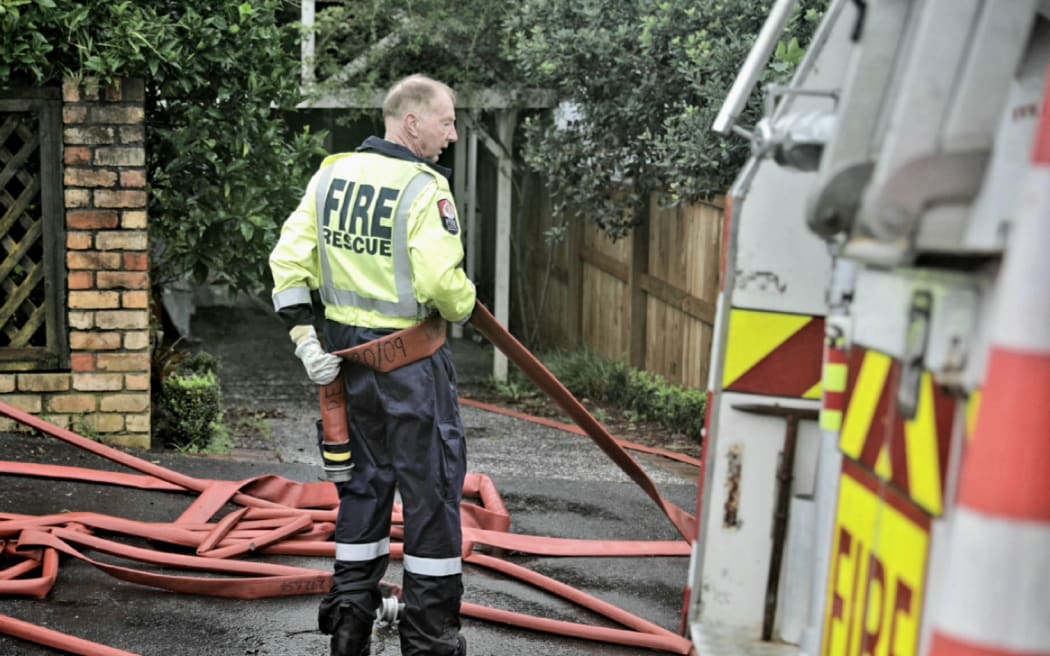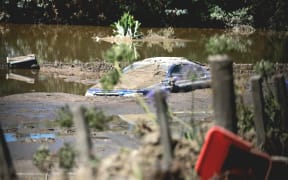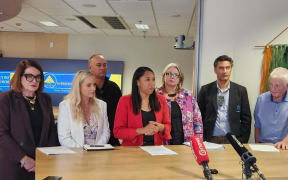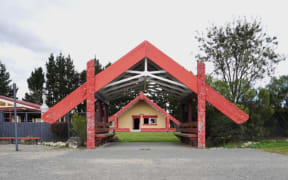
Photo: RNZ / Nick Monro
An internal review found Fire and Emergency lacked the equipment, training, and preparedness to effectively respond to Cyclone Gabrielle and the Auckland anniversary weekend floods.
FENZ's operational review of the severe weather events in January and February 2023, found risk assessment and safety training should be reviewed to ensure appropriate personnel were trained and refreshers provided where needed.
The review, led by Retired Assistant National Commander Ian Pickard, also said FENZ did not have the wide range of specialist response equipment needed.
"Fire and Emergency personnel acquired resources such as boats to help evacuate people."
During the Auckland floods fire fighters without boats were going into neck deep water to rescue people from their homes.
While during Cyclone Gabrielle, crews were forced to borrow a rowing club's dinghy to help rescue multiple people where the water levels were too high.
"Fire and Emergency does not have a wide range of equipment suitable for dealing with landslips and should consider whether enhancements are required and, if so, at what scale," the review said.
And crews did not have suitable personal protective equipment (PPE) for floodwaters.
The review said FENZ "worked well" with other agencies and "provided much needed support and skillsets" but said there was a lack of resourcing which pushed the limits of capability.
"Efficiencies should be investigated to ensure enough trained and competent people are available to fill appropriate roles and further work is required to ensure our personnel are working with appropriate conditions and training."
Some of the systems used prevented "situational awareness" to be able to properly prioritise demands.
The review said responding to weather-related events was an "additional function" for FENZ and climate change meant such extreme events would be more common.
"Further consideration is required to ensure Fire and Emergency's planning and administration is improved to allow our main functions to be supported while our additional functions are delivered, or we may not be able to safely respond to aspects of major events like these."
Many FENZ personnel were affected by the weather events and yet continued to serve, the review said.
"We suffered loss, both within Fire and Emergency and in our communities. We dealt with significant property and infrastructure damage but kept going."
Changes already made
Fire and Emergency National Commander Russell Wood told Morning Report changes had already been made and would continue.
"The assurance I give to the public is that Fire and Emergency will be there when they need us, I think that we are better prepared.
"We are in a better place than where we were in 2023".
Wood said preparations made during the bad weather in the South Island last week suggested things had improved.
And it had already improved equipment, such and PPE.
He acknowledged the public would not differentiate between FENZ's main functions - fires, car crashes, urban search and rescue - and additional functions like weather related events.
"This is our new reality, and perhaps the country's new reality... that these types of events will become more frequent and much more severe, the question is how do we balance then our efforts, our capability development, so that we can ensure that we're there when the public call us."





